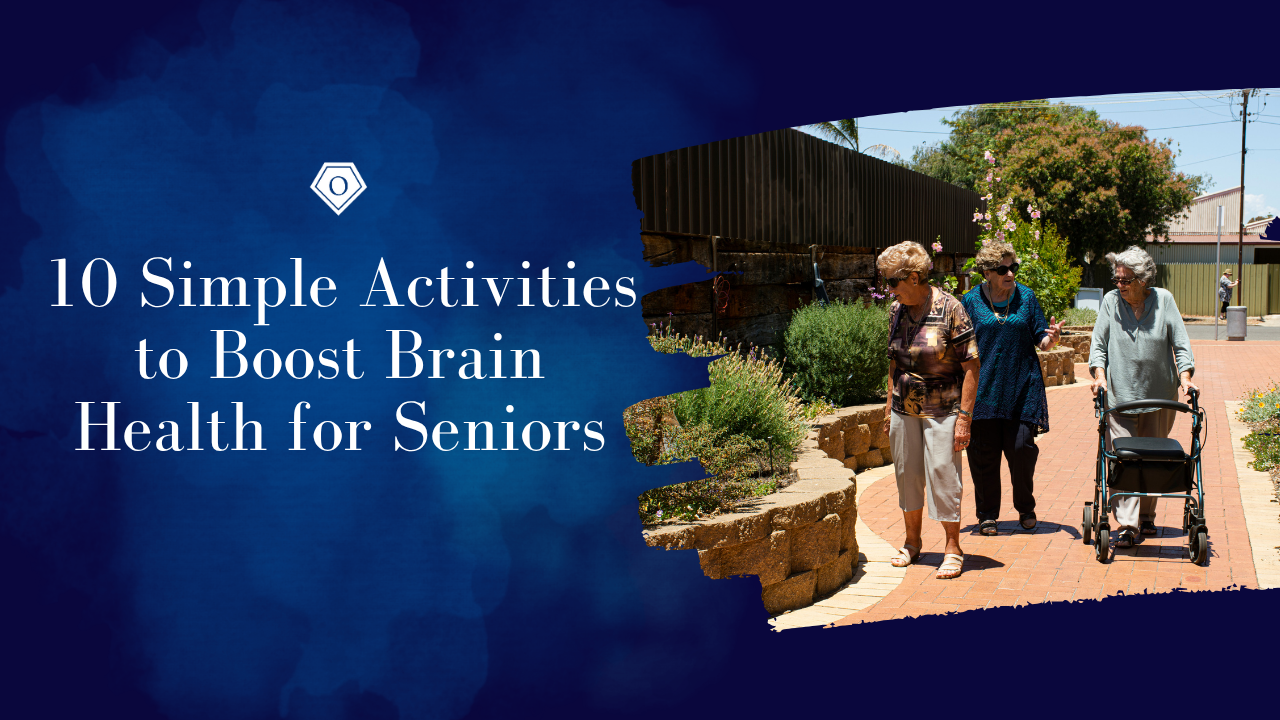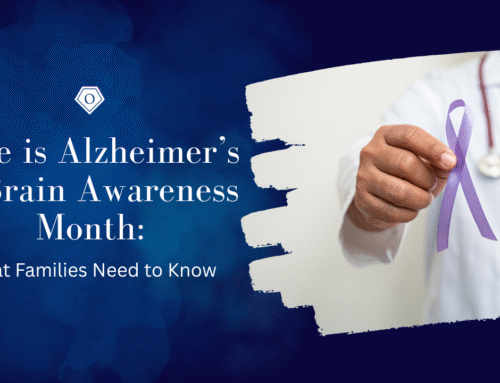Celebrate Alzheimer’s & Brain Awareness Month with practical ways to support brain health in seniors. These activities—backed by science—can help reduce risk, enhance mood, and offer meaningful engagement at any age.
1. Engage in Regular Exercise
Physical activity increases blood flow to the brain, nourishing cells and supporting cognitive function. The Alzheimer’s Association notes that activities like brisk walking, dancing, or gardening may help prevent dementia and support overall brain health (Alz.org). Even light-to-moderate routines, such as walking with a friend or gardening weekly, can make a difference .
2. Eat a Heart-Healthy Diet
What benefits the heart often benefits the mind. Diets like DASH or Mediterranean—rich in fruits, vegetables, whole grains, and healthy fats—are linked to vascular health and potential dementia prevention (Alz.org).
3. Stay Mentally Stimulated
Activities such as reading, learning a new skill, doing puzzles, or playing games keep the mind engaged and may build cognitive reserve. The Alzheimer’s Association supports this theory, showing mentally stimulating behaviors can delay onset of cognitive decline .
4. Socialize Regularly
Social interaction supports brain health by reducing isolation and stimulating mental engagement. Joining a book club, volunteering, or gathering with friends strengthens both emotional and cognitive well-being (Alz.org).
5. Try Creative Arts and Music
Music and art activities allow seniors—even those with dementia—to express themselves and engage creatively. Studies show such experiences can boost mood, reduce agitation, and offer meaningful connection (Alz.org).
6. Maintain a Daily Routine
A consistent, structured day helps reduce stress and promote cognitive stability. Establishing regular times for meals, activities, and rest is especially helpful for seniors and those experiencing memory decline (Alz.org).
7. Incorporate Reminiscence and Memory Sharing
Looking through photos, telling stories about the past, or making memory collages fosters conversation and connection. Such activities are linked to emotional well-being and cognitive engagement(Alz.org).
8. Engage in Family-Friendly Games
Playing simple games—like cards, checkers, or word searches—provides mental stimulation and social enjoyment. These activities are linked to improved memory and processing speed in older adults.
9. Go for Nature Walks or Gentle Hikes
Combining physical activity with time outdoors offers a double benefit: cardiovascular support and reduced stress. The Alzheimer’s Association encourages outdoor or group walking to support brain health.
10. Prioritize Sleep and Stress Reduction
Adequate sleep (7–8 hours nightly) and stress management are critical for brain health. Disrupted sleep may impair the brain’s ability to clear toxic proteins, increasing Alzheimer’s risk . Relaxation practices, such as light meditation, also support cognitive resilience.
Why These Activities Matter
Evidence shows that combining heart-healthy habits, mental stimulation, social connection, and lifestyle adjustments significantly reduces the risk of cognitive decline. Mixed activities—like walking with a friend (physical + social) or doing puzzles together (mental + social)—offer layered benefits.
It’s never too late to take steps that support brain health. Even small daily habits—whether walking, reading, sharing stories, or enjoying music—can play a valuable role. Celebrate Alzheimer’s & Brain Awareness Month by choosing one or two activities to integrate into your loved one’s routine.
At Onyx Home Care, we help families keep loved ones engaged, connected, and mentally active. Contact us to learn how home health care can support brain-boosting routines and personalize activities for your loved one’s stage of life.
Dementia & Alzheimer’s Care
Onyx Home Care’s neurological disorder care is built around a system of support. This service includes skilled home care as well as a unique program that centers on the patient’s interests and stage of illness. Our goal is to see happy family members, patients and caregivers. Often times, caregivers feel remote. Our team includes each person in the home care process to provide inclusive care that helps the patient thrive.






